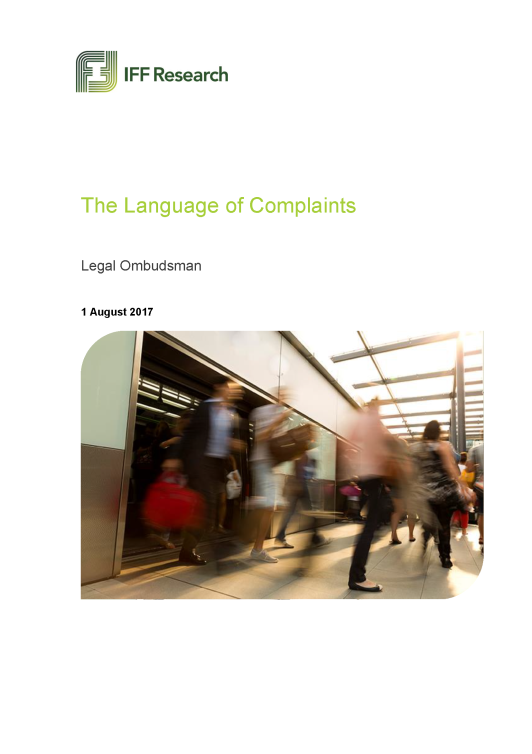Earlier this month the Legal Ombudsman published research they had conducted on ‘The Language of Complaints’. Although focussed on their role and that of legal service providers, there are lessons to be learned for all complaint handlers, including my office.
When a person makes a complaint it is generally about an issue that has caused them great upset or stress. Therefore it is important that the complaints process doesn’t exacerbate those feelings. Good communication is key to achieving this. When communication is clear, meaningful and understandable, people are less likely to feel frustrated or alienated by the complaints process, and more likely to be satisfied with how their complaint was handled.
This is clearly demonstrated in The Language of Complaints research published by the Legal Ombudsman this month. The research considers the role of the initial organisation dealing with a matter and the role of the Ombudsman themselves. It addresses not only the communication that forms part of the complaints handling process, from the initial call through to the final decision, but also the importance of considering the design and content of websites and other publications including fact sheets.

Many of the points highlighted in the research apply to all complaint handling organisations including:
The importance of a positive approach
Complaints are often seen as something negative. However, complaints provide an opportunity to put things right and improve. The source of the complaint is undoubtedly a negative incident so it is important that the complaints process takes a positive approach from the outset. People should never be made to feel like their complaint is an inconvenience or that they are seen as a troublemaker for raising a complaint when they have been wronged. It is also important for organisations to recognise the “positive aspects of complaining” as recommended by the research.
Avoid jargon and overly complex language
When communication is clear and direct there is less room for misunderstanding and the process can be less intimidating. Don’t use more words than necessary and use plain language wherever possible (something that is an occupational hazard in the world of defence!).
Check for understanding
It is important to check that the message sent is the message received. This is true of all communication, whether verbal or written, and it works both ways. Complaint handlers need to ensure that they have properly understood what a complainant is saying and what they are complaining about. It is equally important to ensure the complainant is given an opportunity to check their understanding of the information given to them.
The importance of apologies
This is an issue that I wrote about in my November 2016 blog – The Power of Sorry and this research supports the points I made in that blog about the importance of a genuine apology and the positive impact it can have.
For anyone involved in handling complaints, this is an important piece of research to read. Although it specifically relates to one industry, the principles are universal and there is something every organisation can take from it and implement to improve their own processes and the information they put out.
I know that my organisation will certainly use this as a learning tool and as we are now in the process of transforming our website it will definitely help to shape the decisions we make about design and content.